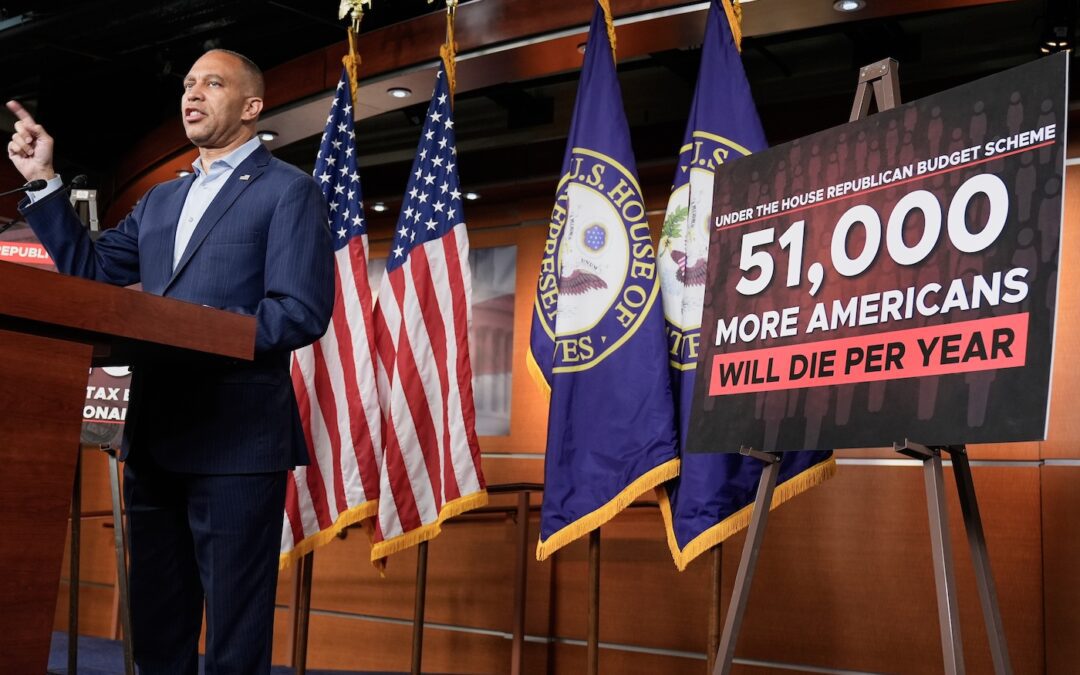
President Joe Biden speaks during an event at Henry Maier Festival Park in Milwaukee, Monday, Sept. 5, 2022. (AP Photo/Morry Gash)
President Joe Biden announced Tuesday morning that he’ll be running for re-election in 2024, a move that means Wisconsinites can expect to see even more of the president, who knows the state’s razor thin margins have made the difference in the last two elections.
Biden made the announcement in a three-minute video that centered around the concept of “freedom,” and laid out how his administration has expanded freedom for Americans while “MAGA Republicans” were taking away fundamental rights.
“When I ran for president four years ago, I said we are in a battle for the soul of America,” Biden said in his announcement video. “And we still are. The question we are facing is whether in the years ahead we have more freedom or less freedom. More rights or fewer. This is not a time to be complacent. That’s why I’m running for re-election.”
His announcement was widely expected, as the president had said that he would run again multiple times in the past several weeks. On a recent trip to Ireland, Biden told reporters that he would announce his re-election campaign “relatively soon.” Several days earlier, Today Show host Al Roker asked the president directly during the annual White House Easter Egg Roll, to which Biden responded: “I’m planning on running, Al, but we’re not prepared to announce it yet.”
The campaign for a second term will likely include multiple stops in Wisconsin, a state where he beat former President Donald Trump by only 20,682 votes in 2020. The 0.63% margin was not far off Trump’s own narrow 2016 victory margin of 0.77% over former secretary of state Hillary Clinton. Upon taking office in 2021, Biden made Wisconsin the site of his first official domestic trip as president. The president talked about his infrastructure plans during a 2021 visit to La Crosse and a 2022 visit to Superior, where he touted repairs to the aging Blatnik bridge that were funded in part by the Bipartisan Infrastructure Law. He also spent part of that year’s Labor Day at the Summerfest grounds in Milwaukee, and Wisconsin was his first stop after this year’s State of the Union address.
Biden, who ran in 2020 to “restore the soul of America” after four years of chaos under former president Donald Trump, has built up a long list of accomplishments during his term. He oversaw a nationwide vaccination campaign against COVID-19 and led a strong economic recovery from the pandemic. More than 12 million jobs have been created since he took office, unemployment is at a 54-year low, and labor force participation is back to pre-pandemic levels.
While rising costs have presented a challenge for the administration, inflation has been a global issue and has finally begun to recede in recent months. On the foreign policy front, the Biden administration’s withdrawal from Afghanistan was perhaps the low point of Biden’s first term. But after Russia launched its brutal invasion of Ukraine, Biden marshaled together much of the world to oppose the war, building a strong base of support for Ukraine and providing aid and weapons to help them beat back Russia’s horrifying attacks.
Biden has also achieved some remarkable legislative victories that collectively represent the largest investments in America in generations.
Here are some of those accomplishments:
In 2021, President Biden signed the American Rescue Plan, a $1.9 trillion economic stimulus bill designed to help the United States recover from the enormous economic and health effects of the COVID-19 pandemic. The plan included $1,400 direct stimulus payments to a large swath of Americans, extended unemployment compensation, continued eviction and foreclosure moratoriums, and made investments in child care and small businesses. It also increased the Child Tax Credit, which granted American taxpayers with children under the age of 17 a $2,000 tax benefit, while making it fully refundable.
President Biden also signed the The Infrastructure Investment and Jobs Act, which made a historic investment in infrastructure by providing $550 billion for roads, bridges, broadband, public transportation, safe drinking water, and much more across the US, including billions to Wisconsin.
Then, in Aug. 2022, President Biden signed the Inflation Reduction Act into law, extending generous subsidies that make Affordable Care Act (ACA) health insurance plans more affordable. Those subsidies—introduced as part of Biden’s American Rescue Plan in 2021—were set to expire at the end of 2022, but the Inflation Reduction Act extends them through 2025.
The law prevented an estimated three million Americans from losing their ACA insurance and 10.4 million more enrollees from paying more for their insurance plans. The act also reformed Medicare to lower drug costs for tens of millions of seniors with Medicare Part D coverage, which covers prescription drugs, and implemented a $35 monthly co-pay cap on insulin for seniors on Medicare.
The Inflation Reduction Act also represents the largest-ever national investment in fighting climate change, and is predicted to help create up to nine million jobs over the next decade while reducing premature deaths from air pollution and helping the US dramatically reduce climate change-causing emissions.
That same month, Biden announced an executive order to cancel up to $20,000 in federal student loan debt for tens of millions of borrowers and make systemic changes to ensure future repayment terms are far more fair for low- and middle-income borrowers. The order has received pushback from GOP leaders and is the subject of numerous lawsuits, which have made their way to the Supreme Court. A ruling on Biden’s plan is expected to be issued by the end of June.
The Biden administration also led the passage of the Bipartisan Safer Communities Act, which enhances background checks for prospective gun buyers under the age of 21 and requires law enforcement authorities to have time to examine juvenile records, including mental health records beginning at age 16. The law also represents the largest-ever national investment in mental healthcare, funding more certified community behavioral health clinics, new mental health counselors in schools, and other efforts, too.
Thus far, there is no sign of a competitive Democratic primary for Biden. The only other candidates who have announced their runs for 2024 are self-help author Marianne Williamson, and anti-vaccine activist Robert F. Kennedy Jr., neither of whom have large bases of support.
Assuming Biden emerges from the primary as the nominee, Americans might be looking at a repeat of the 2020 election come fall 2024. Trump launched his campaign in November of last year and has remained atop the polls ever since, despite—or perhaps because of—mounting legal troubles: Trump has been charged with 34 felony counts of falsification of business records in the first degree. He has pleaded not guilty to all charges.

Review: Wisconsin winners, losers, and liars–the big beautiful budget mess and chaos in Congress
President Trump’s megabill will affect Wisconsin primarily through Medicaid and healthcare cuts. [Editor’s Note: Subscribe to our weekend political...

Everything Wisconsin needs to know about Trump’s cuts to Medicaid and BadgerCare
BadgerCare is what Wisconsin calls its Medicaid program, so let’s learn why Medicaid is so important to more than 1 million people in the state and...

Trump’s ‘Big Beautiful Bill’ is ugly for Wisconsin. Republicans voted for it anyway.
After vowing not to cut “a nickel” from benefits Wisconsin GOP House members vote for punishing cuts to food benefits and health care. All of...

A third of parents are putting career plans on hold due to the cost of childcare—even here in Wisconsin
When Elisha Aguilar began looking for childcare for her toddler in San Antonio, it wasn’t as easy as calling up a few daycares and taking tours....




